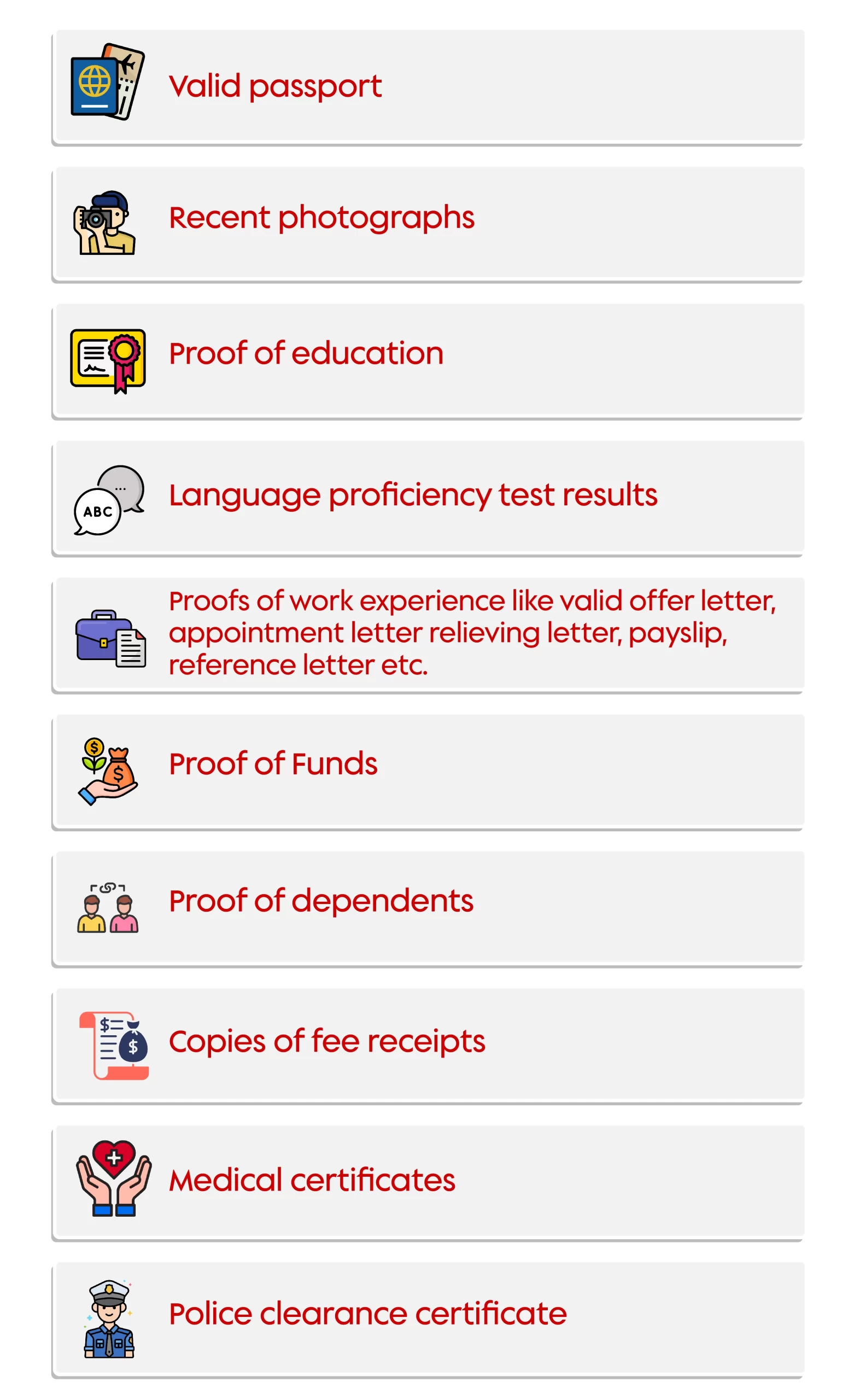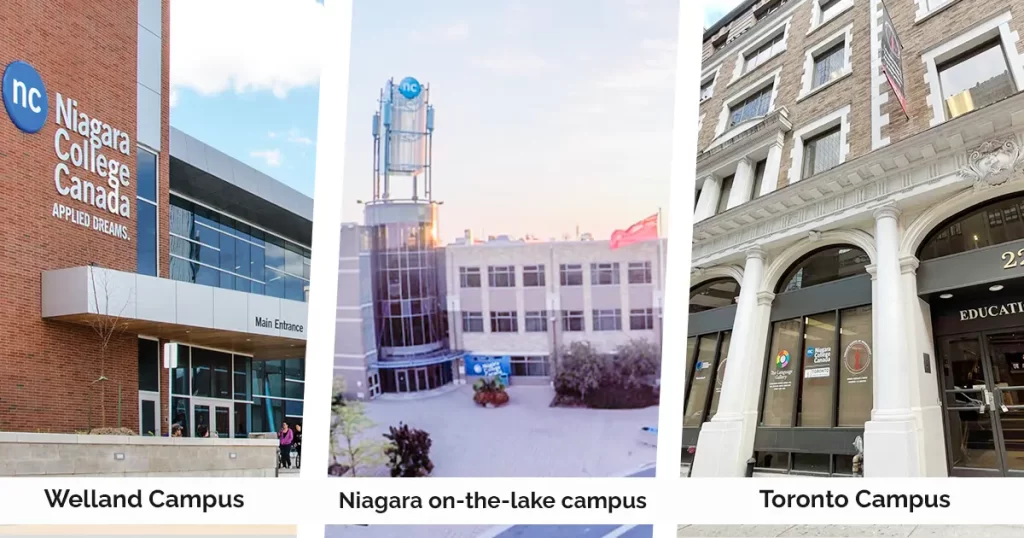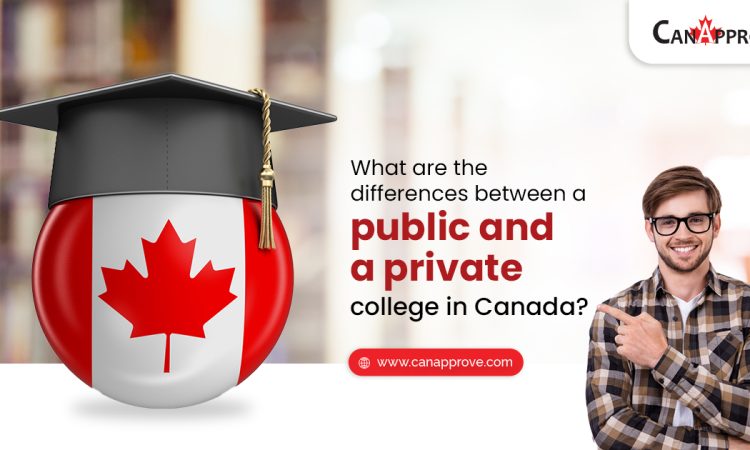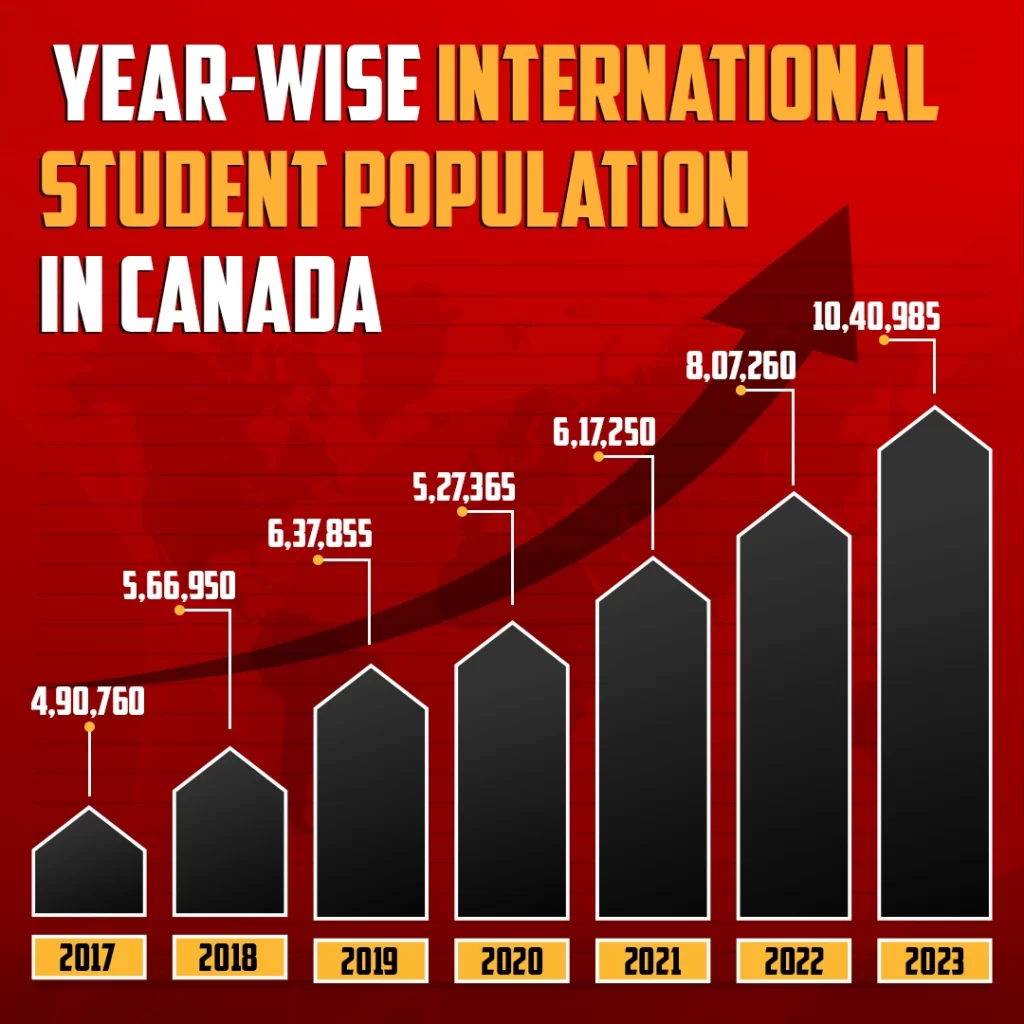Quick Summary – Modernizing the Student Visa Programme
1. Starting in 2024, Canada plans to create a two-level structure for international student enrolment in Designated Learning Institutions (DLI).
2. Some schools will be called “Trusted Institutions.”
3. Foreign students applying to Trusted Institutions will have their visa applications processed faster.
4. This is all part of Canada’s plan to make its International Student Program more up-to-date.
5. Discussions on setting a limit on international students as Canada is on track to host 900,000 international students this year.
Canada is set to transform its approach to international student programs with the introduction of the Trusted Institution framework, slated to be fully implemented by 2024.
This innovative model is a key element of a broader strategy aimed at modernizing the Immigration, Refugees and Citizenship Canada (IRCC) International Student Program (ISP).
In this blog, we’ll explore the essential details Furthermore implications of this new framework and answer a few frequently asked questions.
Understanding the Trusted Institution Framework
 Details about the Trusted Institution framework are still emerging, but the core concept is clear. Post-secondary institutions will be assessed against specific criteria that demonstrate their reliability in various aspects, including sustainable intake, identifying genuine students, monitoring compliance, and providing a safe and enriching experience for international students.
Details about the Trusted Institution framework are still emerging, but the core concept is clear. Post-secondary institutions will be assessed against specific criteria that demonstrate their reliability in various aspects, including sustainable intake, identifying genuine students, monitoring compliance, and providing a safe and enriching experience for international students.
Institutions that meet the specified criteria will be designated as Trusted Institutions. While the full implications of this designation are not yet clear, IRCC has hinted that Trusted Institutions may enjoy certain benefits, such as expedited processing for their applicants.
Two-Tiered Structure for Designated Learning Institutions (DLIs)
To host international students, Canadian institutions must be classified as Designated Learning Institutions (DLIs). IRCC’s new framework will create a two-tiered structure among DLIs, distinguishing between Trusted Institutions and others.
The Trusted Institution framework was introduced by IRCC in June 2023, following a Strategic Immigration Review that identified several areas of concern:
1. Vulnerability of International Students: Recent reports of exploitation or mistreatment of visiting students raised alarm bells.
2. High Application Volumes: A surge in applications added pressure to the existing system.
3. Diversification of the International Student Population: The need for a more diverse student body became apparent.
Data-Driven Approach
The framework will rely on two categories of data, including IRCC’s own data sources Furthermore additional data shared by DLIs. This data will encompass metrics like study permit approval rates, student outcomes, and more.
IRCC initiated a pilot data gathering program in August 2023, attended by 20-30 Canadian institutions. The program aimed to collect data on retention rates, on-time program completion, and other vital metrics. After refinement, this data-gathering survey will be made available to all DLIs in fall 2023.
Concerns About International Student Caps
 Canada is experiencing a significant surge in international student enrollment this year. The country is poised to welcome a record-breaking 900,000 international students by the end of 2023.
Canada is experiencing a significant surge in international student enrollment this year. The country is poised to welcome a record-breaking 900,000 international students by the end of 2023.
However, Canadian government officials have voiced concerns about the rapid growth of international student populations, leading to discussions about the need for caps on international enrollments. The potential caps have sparked debates within the education community.
Quebec, for instance, has stated that it does not intend to impose caps on foreign students within its jurisdiction, asserting its authority over education.
Stakeholder Reactions
Stakeholders in the education sector have varying perspectives. While some advocate for increased investment in student housing, others emphasize that students are not to blame for housing issues.
In conclusion, Canada’s Trusted Institution framework promises to reshape the international student landscape. As it unfolds, institutions and policymakers must navigate the challenges and opportunities it presents while ensuring that the welfare of international students remains a top priority.
Stay tuned for further updates on this significant development in Canadian education.
FAQs: Canada’s Trusted Institution Framework for Student Visas
Q1: What are Trusted Institutions, and how are they different from regular schools (DLIs)?
A1: Trusted Institutions are a select group of Designated Learning Institutions (DLIs) that meet specific criteria demonstrating their reliability in various aspects, such as intake, student identification, monitoring, and student well-being. Regular DLIs will continue to exist, but Trusted Institutions will offer expedited visa processing for their applicants.
Q2: How will this framework affect international students?
A2: International students applying to Trusted Institutions can expect faster visa processing, making their journey to study in Canada more streamlined. However, students applying to regular DLIs will continue with the existing processing times.
Q3: Will Trusted Institutions provide a better education than regular DLIs?
A3: The designation as a Trusted Institution primarily pertains to visa processing speed Furthermore It does not necessarily indicate the quality of education. Both Trusted Institutions Furthermore regular DLIs in Canada offer quality education programs.
Q4: Can I choose to apply to a Trusted Institution?
A4: Yes, if you wish to benefit from expedited visa processing, you can choose to apply to a Trusted Institution. However, keep in mind that not all schools will be designated as Trusted Institutions. Get in touch with CanApprove to determine eligibility specific to your profile.










 Let’s look at the Permanent Residence pathways in the 4 best countries to study abroad!
Let’s look at the Permanent Residence pathways in the 4 best countries to study abroad!













